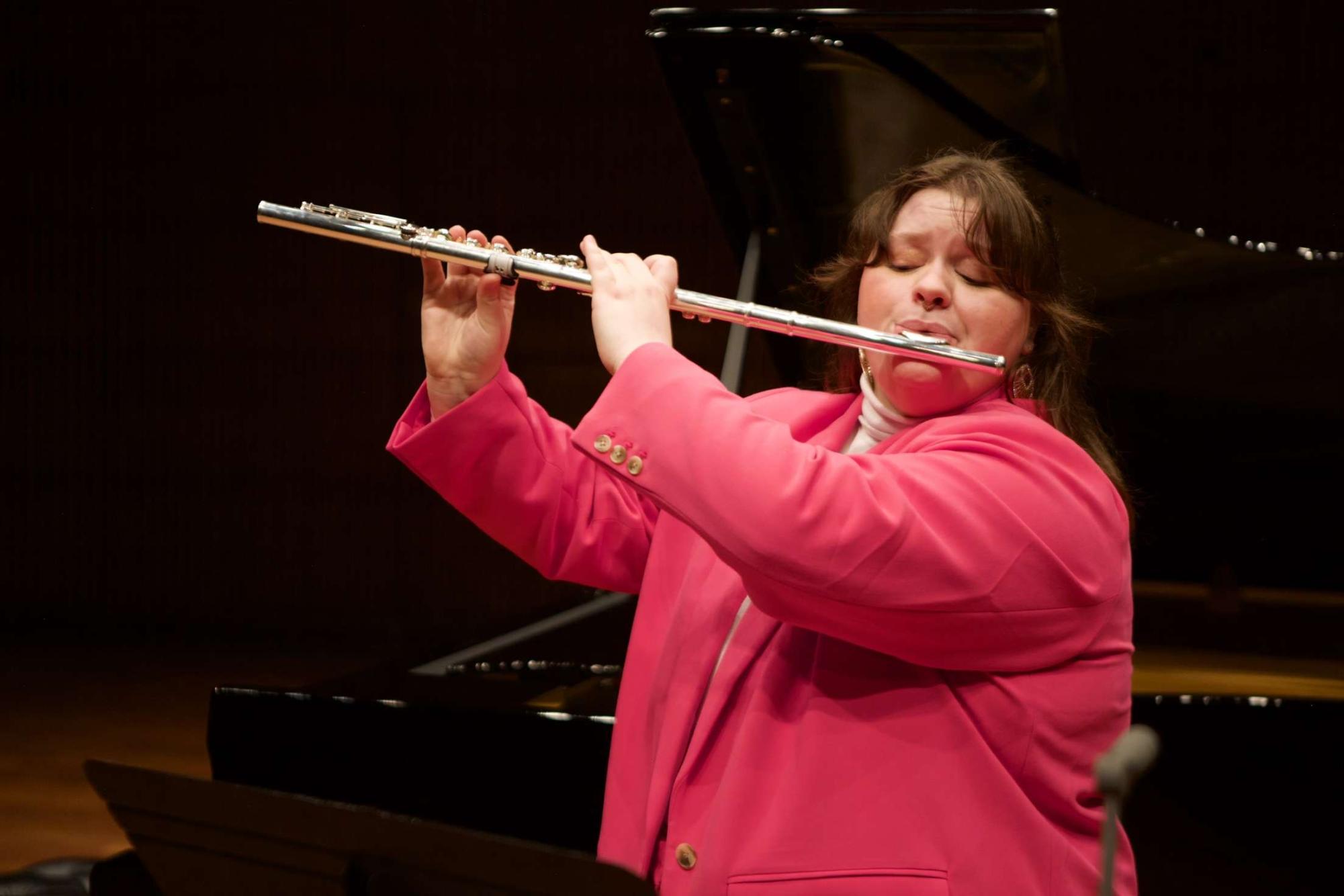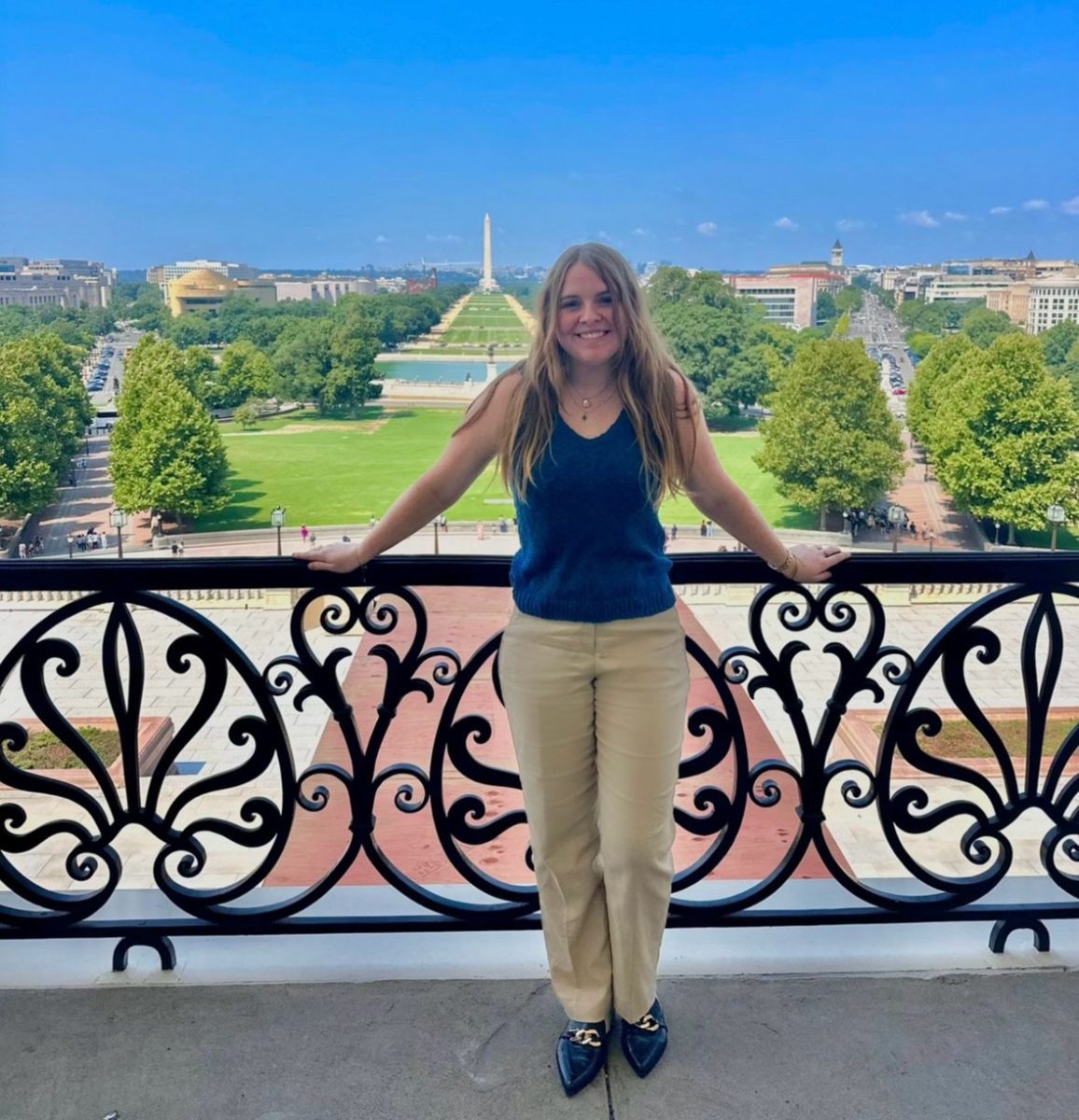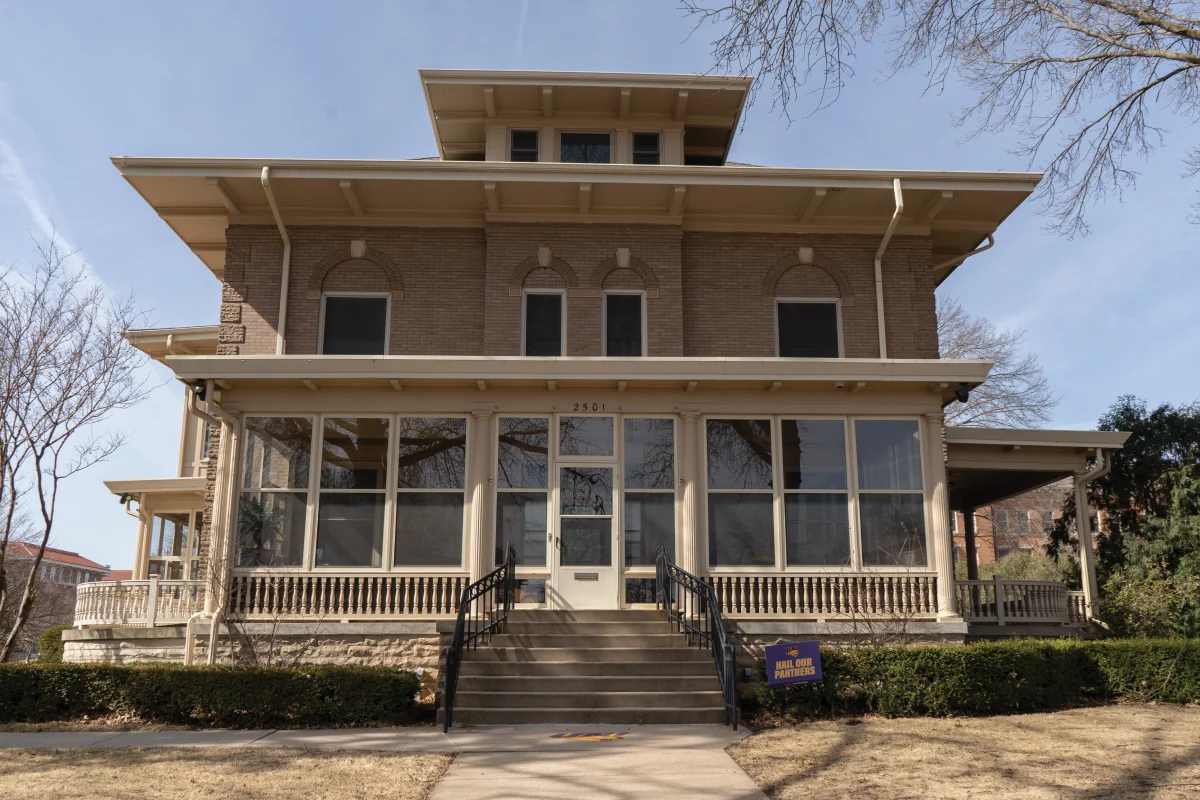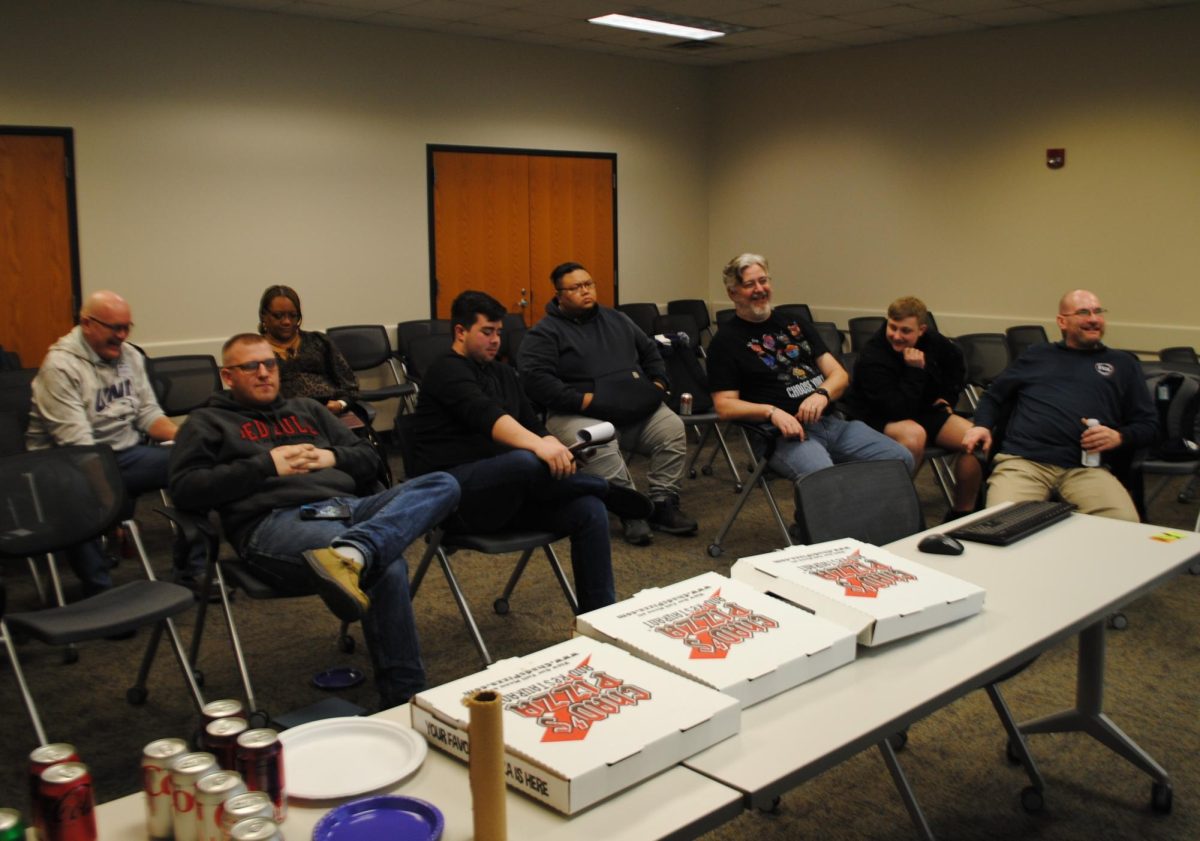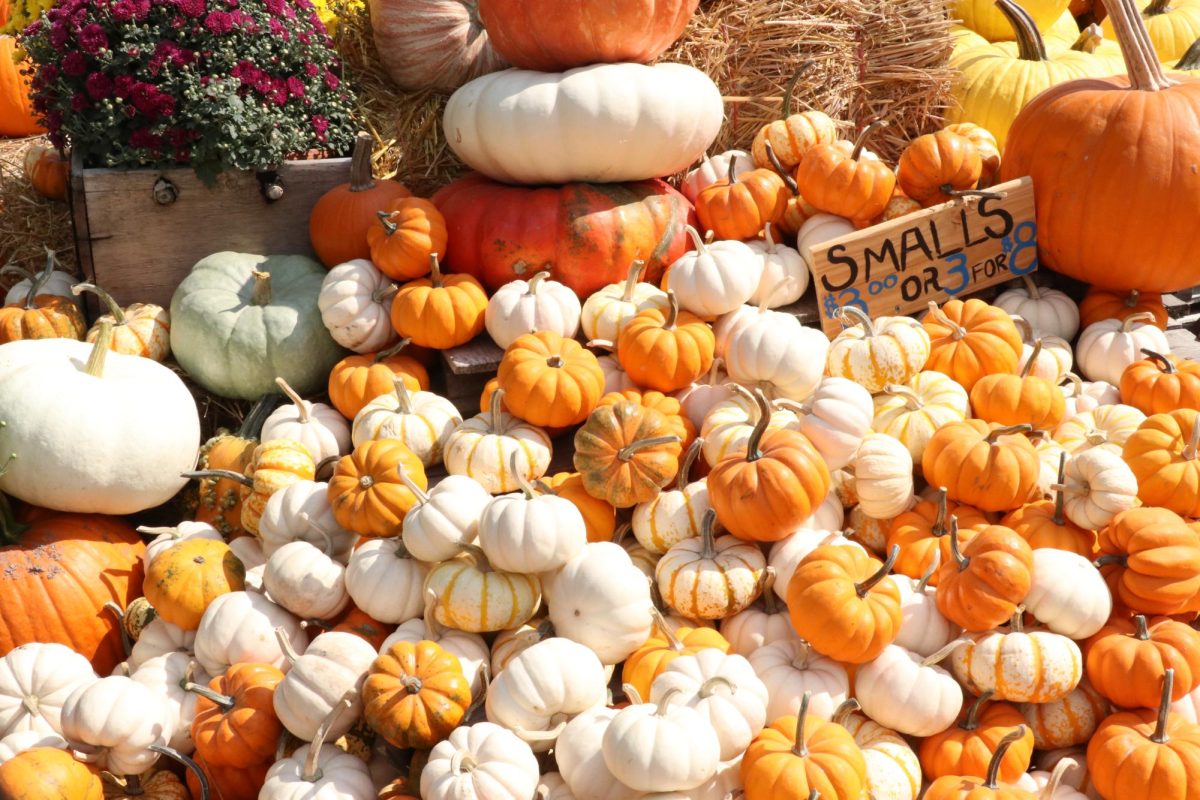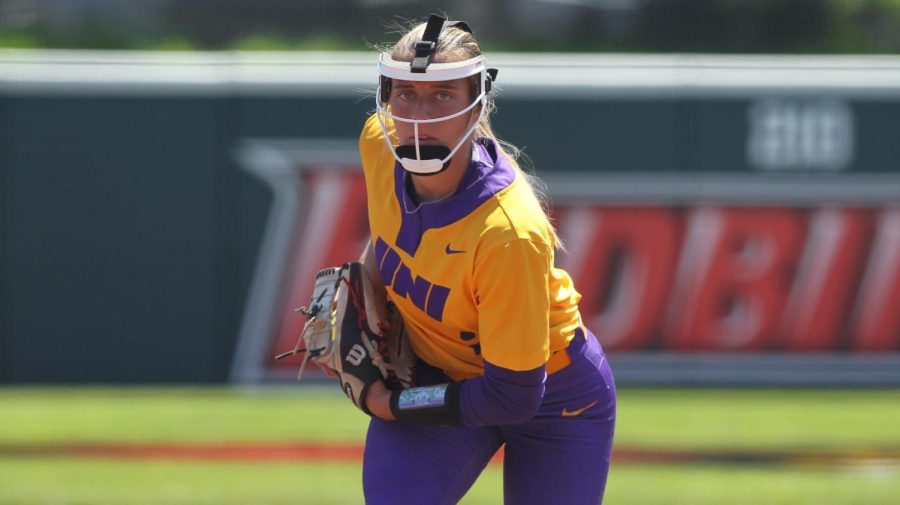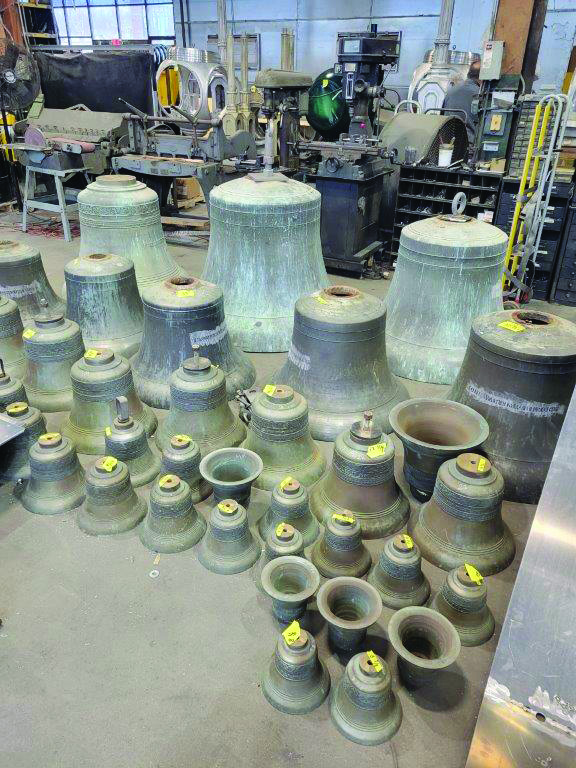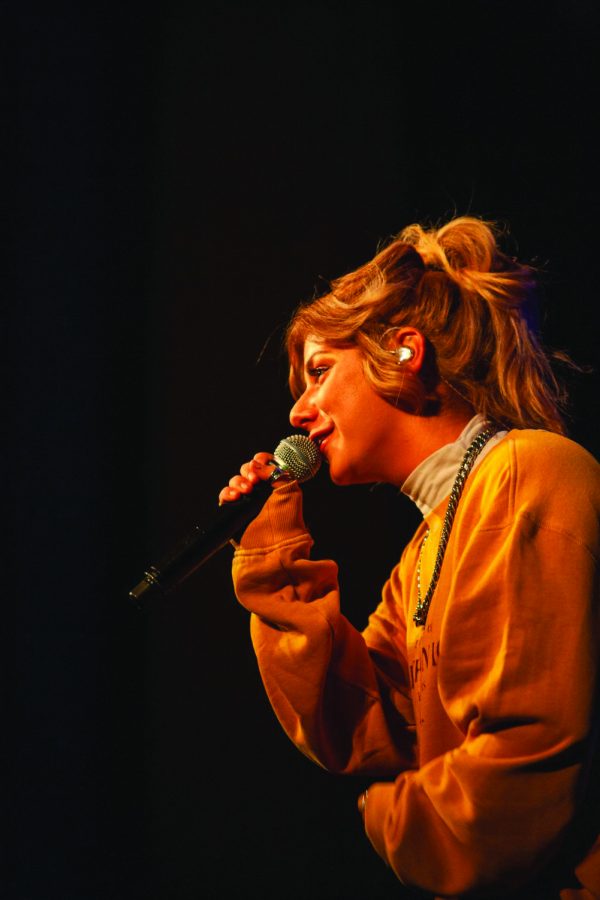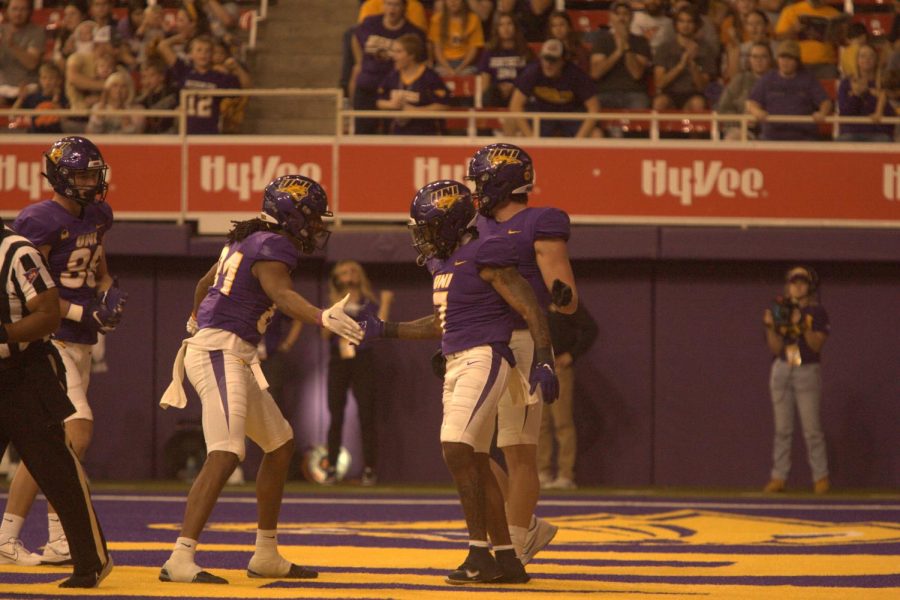For Emily Paul, music means more than just performing.
Double majoring in flute performance and performing arts management, she said she loves music for the connections it can make between people.
“I value music now for it’s the way that music can help people – it really connects you with others. When an audience member is like, ‘Oh my God, you moved me,’ it’s really a powerful feeling. I think it makes it all worth it.”
Emily first picked up the flute the summer before fifth grade, and she hasn’t put it down since. She has performed with several ensembles during her time at UNI, including the UNI Wind Ensemble, Northern Iowa Symphony Orchestra, the UNI Flute Choir and a quintet: the Pavo Winds.
“I love performing for people and getting in the flow,” Emily said. “When you perform for an audience, you really have to empty your brain completely. You have to completely focus on the music. It’s very powerful.”
Emily has earned several awards and accolades, receiving top placements in the Des Moines Women’s club, the Schubert Club and the UNI Emerging Artist Scholarship competitions. She was the winner of the 2023 UNI Instrumental Concerto Competition, and was the UNI School of Music Presser Scholar in 2023. Despite all these awards, Emily says they are not what drive her to be a great musician.
Off the stage, Emily holds positions as the music librarian for the Northern Iowa Symphony Orchestra and the Waterloo-Cedar Falls Symphony, organizing hundreds of music pieces and communicating with principal players. As librarian for UNI’s orchestra, she has taken on the process of revamping the music library in the Gallagher Bluedorn Performing Arts Center by sifting through numerous unused pieces of equipment and boxes, while helping fundraise for new music storage through Sigma Alpha Iota, the international music fraternity on campus.
Emily is the president of the fraternity this year, and has aimed to “get things back on track” after COVID-19 disrupted some of the fraternity’s policies and procedures. But her main goal as president and as a leader is to lead “with empathy and kindness.”
She said, “I always try to make sure that I get everyone’s input whenever I make a decision. I want everyone to have a good experience and everything that they need. Putting people first and their mental health and well-being is important for me.”
With minors in psychology and women and gender studies, Emily said combining her love of music with psychology and advocacy has helped her grow as a musician.
“I realized that I was really passionate about other things besides music, and I wanted to try to expand my horizons. I also started caring a lot about musician wellness, which is why I wanted to add psychology and for me that it’s changed my perspective on how I look at music as a whole.”
She continued by saying being able to make music more accessible is one of her biggest aspirations.
“It’s really been a goal to kind of save the classical music industry and revamp it so that the elitism and the classism that’s ingrained in classical music is changed. How do we use what was used as oppression as advocacy to make people’s lives better? How do we expand access for music education? How do we make it more equitable?”
Emily also has a minor in performing arts management – a minor she added after COVID-19 impacted the performing arts world significantly.
“Musicians don’t have a lot of options if they can’t perform. I knew that having a performing arts management degree would give me business skills that I would need to be an entrepreneur and as a freelance performer, but also teach me a lot about the music industry.”
Emily is also the lead peer educator for the School of Music and has been the flute instructor for the UNI Community Music School. She teaches flutists anywhere from 10 to 65 years old.
Ultimately, Emily said she credits her mom’s decision to put her in private lessons in fourth grade, which she says set her up for the success she has as a musician today.
“I’m so grateful for my mom for thinking so far ahead,” she said. “I love the idea of performing and having a job where it’s not about the money, it’s about the art and the connections. That’s what it’s about.”


